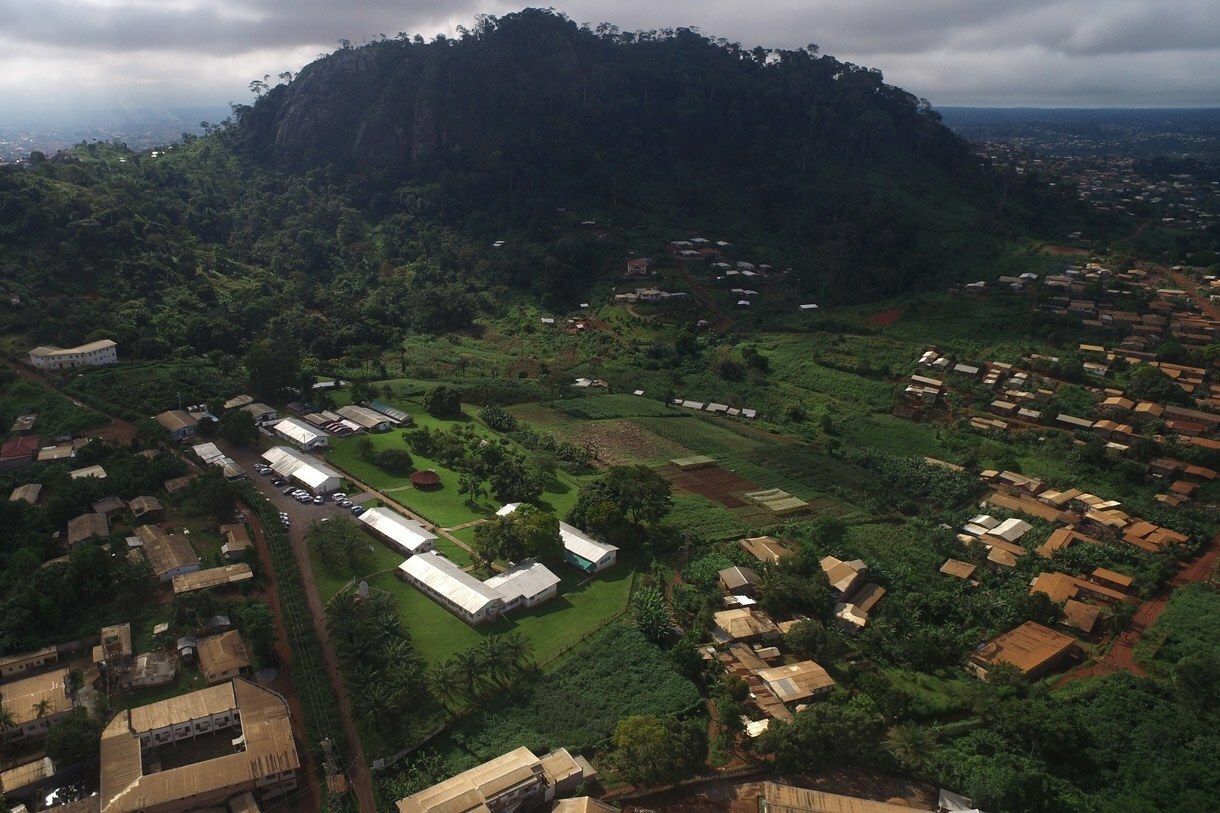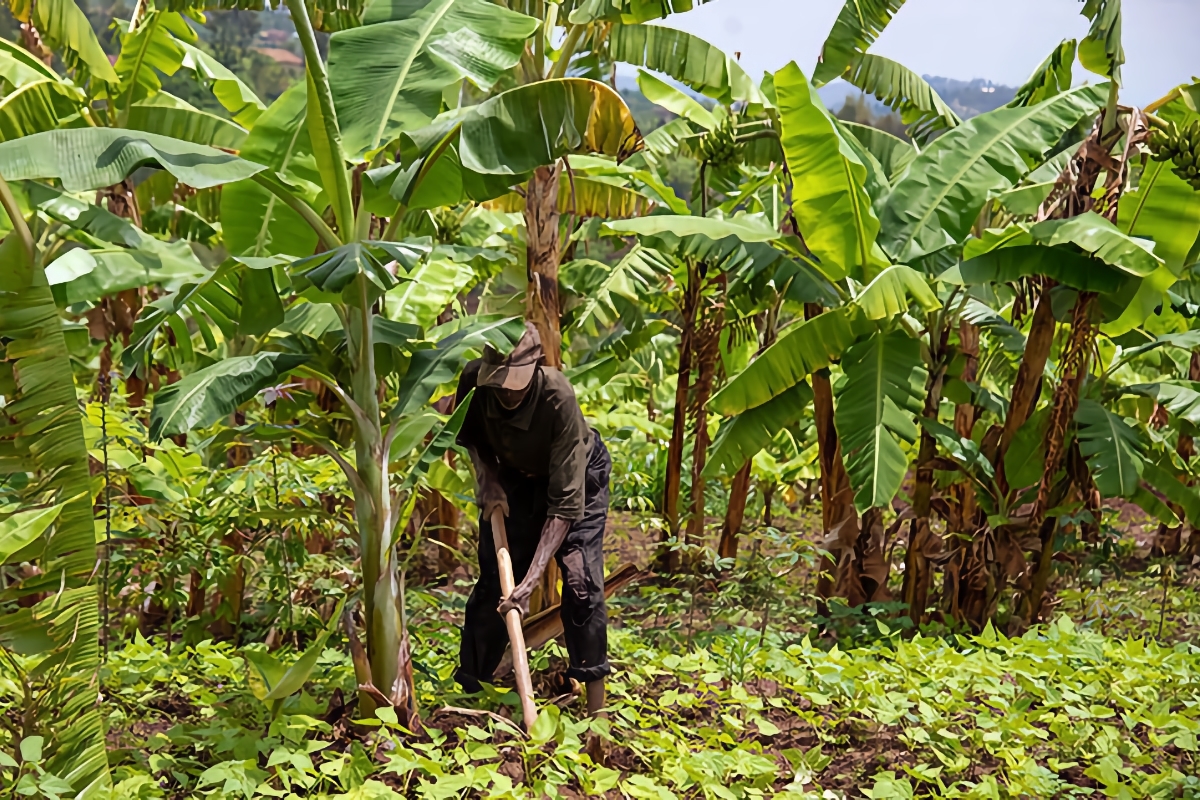About the IITA
The International Institute of Tropical Agriculture (IITA) is a non-profit institution that generates agricultural innovations to meet Africa’s most pressing challenges of hunger, malnutrition, poverty, and natural resource degradation.
Working with various partners across sub-Saharan Africa, we improve livelihoods, enhance food and nutrition security, increase employment, and preserve natural resource integrity.
The International Institute of Tropical Agriculture (IITA) conducts research that provides solutions to nourish Africa – our award-winning agricultural research for development (R4D) focuses on addressing hunger, poverty, and degradation of natural resources in the tropics. We work with public and private sector partners to enhance crop quality and productivity, reduce producer and consumer risks, and promote sustainable livelihoods from agriculture. We are a member of the CGIAR System Office, a global research partnership for a food secure future. IITA is a nonprofit organization created in 1967 in Nigeria and governed by a Board of Trustees.

Where the IITA works
IITA has four regional hubs that serve our scientists and partners across sub-Saharan Africa. The hubs are located in IITA headquarters in Ibadan (Western Africa), Dar es Salaam (Eastern Africa), Lusaka (Southern Africa), and Kinshasa (Central Africa).
Through creative and innovative partnerships, IITA links up with national agricultural research systems, advanced research institutes, universities, small- and medium-scale enterprises women’s and farmers’ organizations, and other grassroots organizations. Productive relationships, partnerships, and networks will be built for participatory research, extension, capacity development, communication, and monitoring and evaluation.
What we do
IITA focuses on three strategic objectives: (1) increasing food security and availability, (2) increasing profitability of foods, feeds, and other agricultural products, and (3) sustainable management of natural resources. Our research is organized around four core competencies.
Genetic improvement and biotechnology
We work on improving key tropical food crops, such as banana and plantain, maize, cassava, soybean, cowpea, tree crops, and yam. We develop better crop varieties with enhanced yield and that are suitable for tropical agroecologies, with tolerance or resistance to pests and diseases, and difficult environmental conditions. These varieties have traits that satisfy the changing demands of processors and consumers and are improved using advanced biotechnological tools.

Plant production and health
We develop ecologically sustainable, economically profitable, and socially acceptable solutions for pest, pathogen, and weed control, and climate change constraints. We also identify and promote promising crop management options for specific climatic and cropping system conditions, such as agricultural intensification strategies that combine tillage systems, crop diversification, and efficient use of inputs; and approaches that facilitate the availability and dissemination of good quality planting materials to farmers with the help of the private sector and policymakers.
Natural resource management
We work on natural resource management, particularly on sustainable intensification of farming systems. Using a livelihoods perspective, we look at soil biological processes, beneficial organisms and their mechanisms, management strategies, and soil input products ensuring effective nutrient-use. We develop best-fit integrated soil fertility management practices, including matching improved germplasm and technologies specific to farm niches and using farmers’ innovations and community-based planning to manage ecosystem services.
Social science and agribusiness
Conducive policies and institutional support are necessary for smallholder producers to increase their income through better access to markets. We undertake gender responsive research and look at poverty reduction strategies and policy frameworks to ensure the impact of our research in its context. We work on enhancing nutritional quality of food products along the crop value chains, breeding for more nutritious crops, promoting health platforms, reducing occupational and health hazards, and improving water quality. We also develop and disseminate R4D outputs that promote commercialization of agricultural products, stimulate effective private–public partnerships, and reduce the tedium and drudgery of field labor, especially among women, children, and the elderly.
CGIAR Research Programs
IITA participates in several global multi-site, multidisciplinary research programs with other CGIAR research centers and a multitude of partners to tackle issues on food security and agriculture: Roots, Tubers and Bananas (RTB), Agriculture for Nutrition and Health (A4NH), Grain Legumes and Dryland Cereals (GLDC), Policies, Institutions and Markets (PIM), MAIZE, Climate Change Agriculture and Food Security (CCAFS); and five platforms: Genebank, Excellence in Breeding (EiB), Excellence in Agronomy (EiA), Gender, and Big Data.
Our current research for development efforts align with the One CGIAR portfolio that addresses critical development issues.
Harnessing genetic diversity to nourish future generations. IITA’s Genetic Resource Center will continue to advance the genetic resources among the IITA’s mandate crops; cassava, yam, banana/plantain, maize, soybean, cowpea and other important crops in sub-Saharan. IITA is a major player in the CGIAR Crops to End Hunger Initiative that extends to its six mandate food crops in close interaction with the CGIAR Excellence in Breeding Platform.
Building sustainable systems for the future. Together CGIAR and IITA will focus upon innovations that enhance the lives of small-scale food producers through the advancement of climate-resilient farming systems. IITA has proposed the following initiatives:
A CGIAR Plant and Soil Health Initiative to protect global food supplies against threats from biorisks and loss of biodiversity. IITA holds a strong comparative advantage across the CGIAR in plant and soil health.
Responding to biological threats. This area presents a clear opportunity to examine the emergency response and preparedness capacities among CGIAR Centers within our respective mandate crops.
Excellence in Agronomy is led by IITA with participation of eight other CGIAR centers.
Strengthening policies, markets and services for food systems transformation is intended to provide policy options to national and regional bodies that enable food system transformation.
Improving Nutrition and One Health involves stronger CGIAR commitment to food system research. Addressing Hidden Hunger is a CGIAR strategy on biofortification to address nutritional security. IITA recognizes that the CGIAR has under-invested in this area and that its strengths in crop improvement, crop management, and gender and youth empowerment can be consolidated around this emerging priority.
Reducing inequalities and vulnerability for women and youth. IITA holds special expertise in youth empowerment and has developed the IYA program designed to empower young graduates to own their own business and create jobs. Also, IITA is participating in the GENDER Platform (Generating Evidence and New Directions for Equitable Results).
Leveraging global responses to the climate crisis. The Two-degree Initiative for Food and Agriculture (2DI) is a CGIAR response to the threat of climate change. IITA’s Biorisk Management Facility leads 2DI’s Grand Challenge (GC) 1 related to environmental health and is positioning itself to contribute to others including food systems within megacities (GC8). IITA is showcasing its expertise and technologies relating to overcoming climate-driven risks in the Sahel, especially in Niger and Mali.